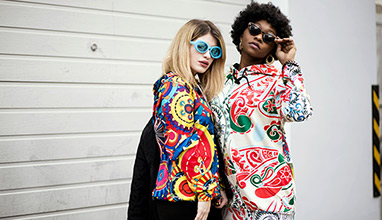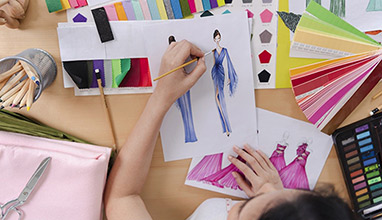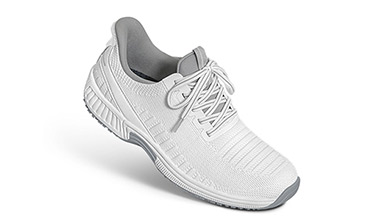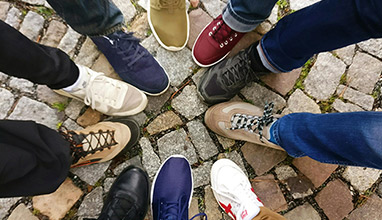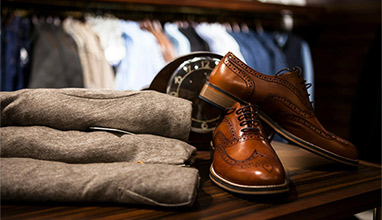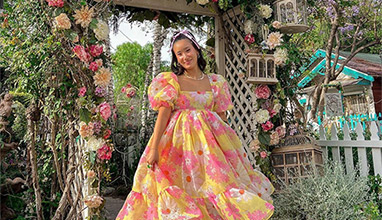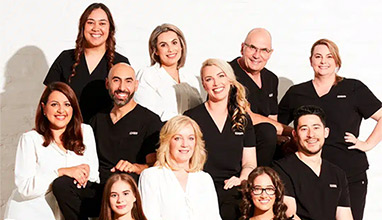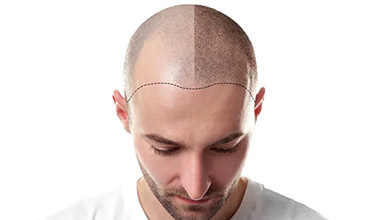How to Find the Best Clothing Manufacturer for Your Business
If you plan to start a clothing brand or have already made the first steps, you will benefit from knowing how to find the best clothing manufacturer for your business. Heck, even if you’re an established fashion/sportswear company, you may learn a thing or two here. In this article, you will learn about:
1. Why the target market should dictate your choice of clothing manufacturers
2. How manufacturers with sustainable practices can improve your image and revenue
3. Not all manufacturers can make all types of clothing
4. Why knowing the manufacturing processes and textile machinery will help you pick the best clothing manufacturer for your business.
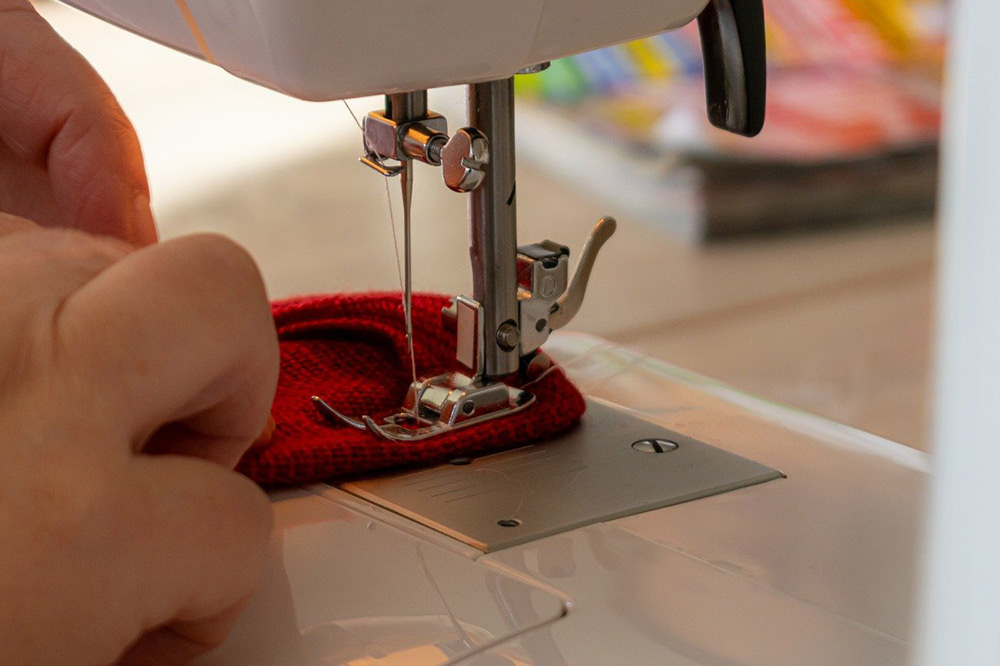
Target market – the key factor in choosing a clothing manufacturer
Sourcing from a manufacturer in or near your target market drastically reduces lead times. Also, it eliminates almost all external factors as negative influences (the disruption in the Red Sea in early 2024 is a perfect example).
In this case, the best clothing manufacturer will be close to your warehouse. This makes the reordering process significantly less complicated because the delivery isn’t a major factor in the lead time. This means that as soon as demand for your clothing rises, you can make a reorder and count on it to arrive in a few weeks, rather than months.
For each major market (US, EU, GCC), there’s a choice of nearby countries full of potential clothing manufacturers. The most demanding one is the EU. Let’s see why.
EU market – the one market where certificates go a long way
According to Statista’s report “Revenue of the apparel market worldwide by country in 2022”, just Germany, France, Italy, and Spain combined make for the third biggest global market. Add to it the UK and the rest of the EU countries, and it can easily be joint second with China, if not a tad bigger. If you’re not already present there, you should be. But there’s a catch.
The EU market is the most demanding one when it comes to social and ecological compliance. In Germany, companies with over 1000 employees (including the suppliers) must ensure that their supply chain has a way of proving that they don’t cause human rights abuses and environmental damage. Social responsibility audits like SMETA and certificates like GOTS, RSW, GRS, and OEKOTEX are one of the most recognized ways of proving that. Also, the legislation will keep on getting stricter.
With that in mind, make sure to find a certified clothing manufacturer from Europe if you are to sell your collections on the old continent. We suggest this not only because of legislation but because it’s the right thing to do and if marketed properly, an additional source of revenue.
The best clothing manufacturers for your business are certified
This one is easy to understand. A clothing manufacturer that goes an extra mile to show they operate in a morally and ecologically sound way will go an extra mile to make your collection the best possible. Getting certified is not an easy feat and it requires financial and professional resources.
Also, having the human and material resources to successfully go through a certification process is a statement of dedication and quality – something that sets apart the best clothing manufacturers from the rest.
Below, you can find some of the eco-friendly certificates and audits to keep an eye on and why they’re important.
SMETA Audit by SEDEX
SMETA is a comprehensive social responsibility audit that, if passed, proves that a company respects standards of labour, health and safety, environmental performance, and ethics. Since there’s no database you can access unless you are a Sedex member, you can ask your existing/potential supplier to send you their audit report. It’s a PDF document detailing all the results of the audit – every company that goes through the process has one.
A SMETA-audited manufacturer will keep you safe from potential PR disaster since it’s significantly less likely to be a host to human rights abuses. Also, by 2029, it will become legally required in the EU to have a socially responsible supply chain. Not only for the EU companies but for all companies turning a profit there.
Global Organic Textile Standard (GOTS)
GOTS label is a guarantee that the piece of clothing marked by it comes from a supply chain that has only used organic materials that have been treated with harmless chemicals. Also, the final product must contain at least 70% organic cotton.
The supply chain covered by this certification system begins at the raw cotton farm and ends at the final product. If just one company that handles a potential GOTS-certified product isn’t in the GOTS database, no label will be issued for it. A significant part of a GOTS audit is social compliance, ensuring human rights are guaranteed throughout the supply chain.
You can easily find a GOTS-certified manufacturer in their database.
Responsible Wool Standard (RWS)
Just like GOTS, RSW also requires the entire supply chain, including the sellers to become certified. Some of its ecological and ethical maxims relate to:
- Animal welfare protection (wool must be mulesing-free)
- Land health preservation (promotion of biodiversity and soil health protection)
- Social welfare (human rights must be respected throughout the supply chain)
You can find RWS-certified companies in Textile Exchange’s database.
Global Recycling Standard (GRS)
It is a standard similar to GOTS and RWS but for synthetic materials. It has all the same requirements when it comes to the social aspect and the transparency of the supply chain and it requires at least 50% of the final product to be recycled.
This means that the entire supply chain from the plastic recycling plant to the trading house has to be GRS-certified. Just like RWS, this standard is owned by the Textile Exchange, so you can use the same database to find certified companies.
OEKO-TEX 100 Standard
Oeko-Tex 100 is a label for textile products that guarantees the absence of harmful substances. As a globally recognized standard, it ensures products meet strict environmental and human health requirements. The Oeko-Tex assessments test for over 1000 harmful substances before labelling a product as compliant with the standard. It covers textiles and accessories like zippers and buttons. A product with the OEKO-TEX 100 inside label comes with the QR code and the label number, which you can verify on their label check page.
Other important certificates and audits
In addition to these three, there are other important certificates you should know about:
BSCI (Business Social Compliance Initiative): a social responsibility audit similar to SMETA
ISO standards: cover almost every business aspect, from quality management systems, and environmental management systems, to health and safety and more
As we said, to work with the best clothing manufacturers equals to work with certified ones. That way, you’ll reduce the risk of late deliveries, low quality, environmental and human rights abuses. However, not all manufacturers work with all types of clothing. An RSW-certified clothing factory might only make knitted sweaters and won’t be able to help you make your swimsuit collection.
Different clothing may call for different clothing manufacturers
Be prepared for the possibility of a perfect clothing manufacturer turning up not so perfect for your purposes. That’s because not all factories make all types of clothing. Some decide to stay in one niche, for example, sportswear. Some expand their portfolio but limit it to only clothing from soft fabrics so you can’t make denim collections with them. You should be able to find this information on manufacturers’ websites. If a manufacturer's website is detail-oriented, it will present a list of machinery available at its factory or factories.
Textile machines and why you should know what they do
When you know what each textile machine does, you know what processes a clothing manufacturer is capable of and what processes it will have to outsource. The ones that don’t have to outsource at all or at least outsource one or two processes are the ones you should choose. Outsourcing work, even to a certified nearby subcontractor will damage lead times and the best clothing manufacturers don’t do that.
Below are some machines necessary for different types of clothing:
- For you to get a better lead time, a manufacturer of choice must have some knitting machines available (circular, flat, wrap, weft, jacquard)
- If you need seamless clothing, a manufacturer should have a seamless knitting machine
- In case seamless clothing isn’t a must for you but a chafe-free garment is your imperative, a flatlock sewing machine must be in a supplier’s sewing lines
- Should you have a very demanding design colour-wise and are ok with using polyester, work with manufacturers that have dye-sublimation printers and head press calenders
- If you insist on working with cotton, your manufacturer must use screen printers to transfer your designs to the fabric
- When you need something embroidered on your clothing, make sure that your manufacturer of choice uses industrial embroidery machines
- If you want to sell jeans, a manufacturer would have to use heavy-duty sewing machines, rope/wich/continuous dyeing machines, industrial washing machines capable of stone/enzyme/acid washing, tumble driers, stenter machines and potentially laser bleaching machines
What did we learn today?
1. A garment supplier close to your target market eliminates all delivery concerns
2. A sustainable clothing manufacturer is a marketing gold mine and you should go the extra mile to work with one
3. Get to know potential manufacturers in terms of what they can make
4. You should know your textile machinery so that you can avoid working with a supplier with too many subcontractors – they are the Achilles heel for lead times
With all this information at your disposal, we hope you’ll now be able to make an informed decision when picking the best clothing manufacturer for your business.
Hits: 66688 | Leave a comment



